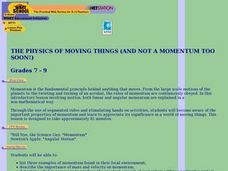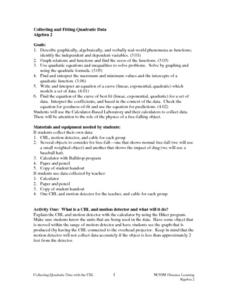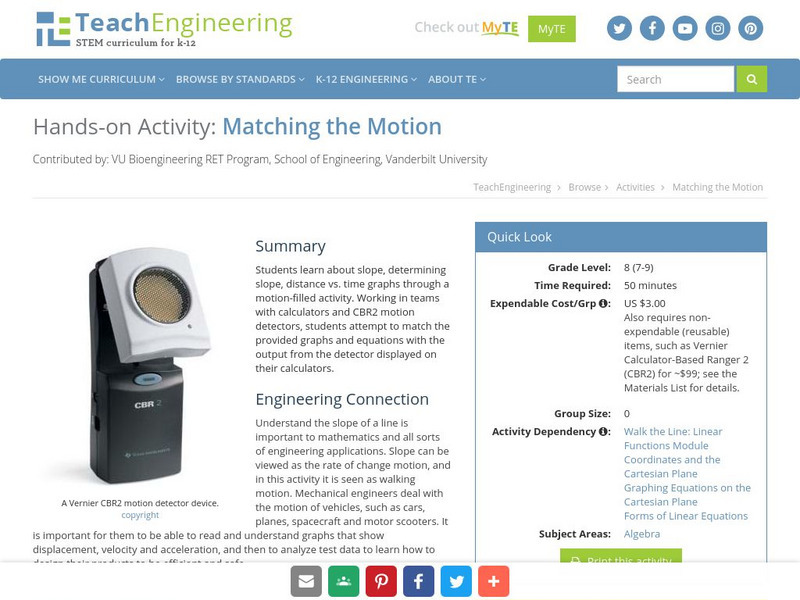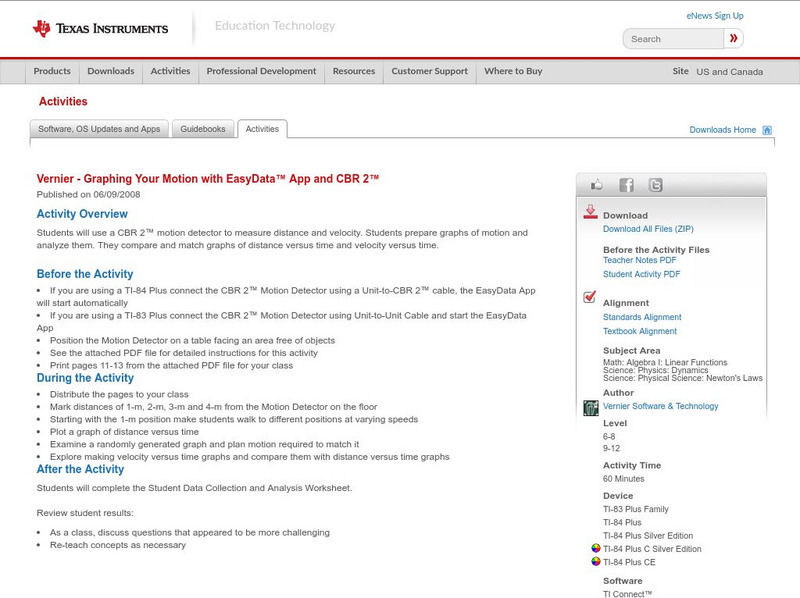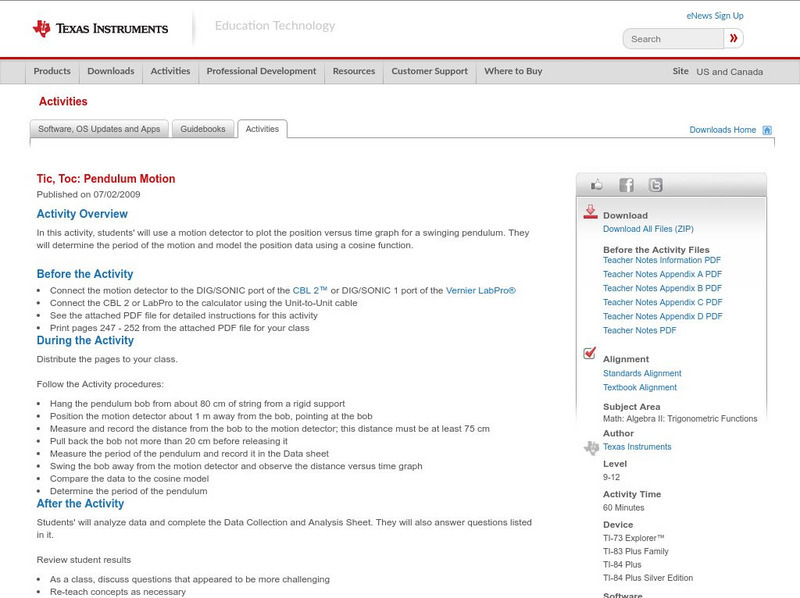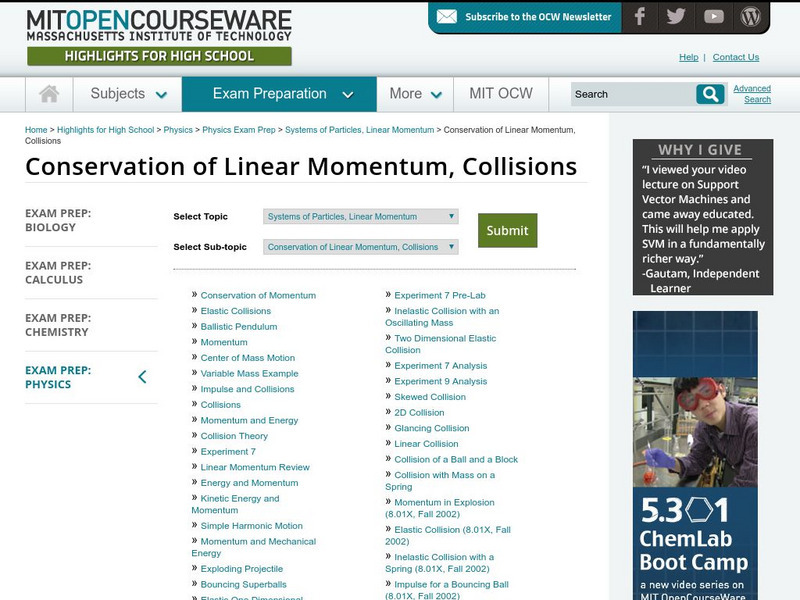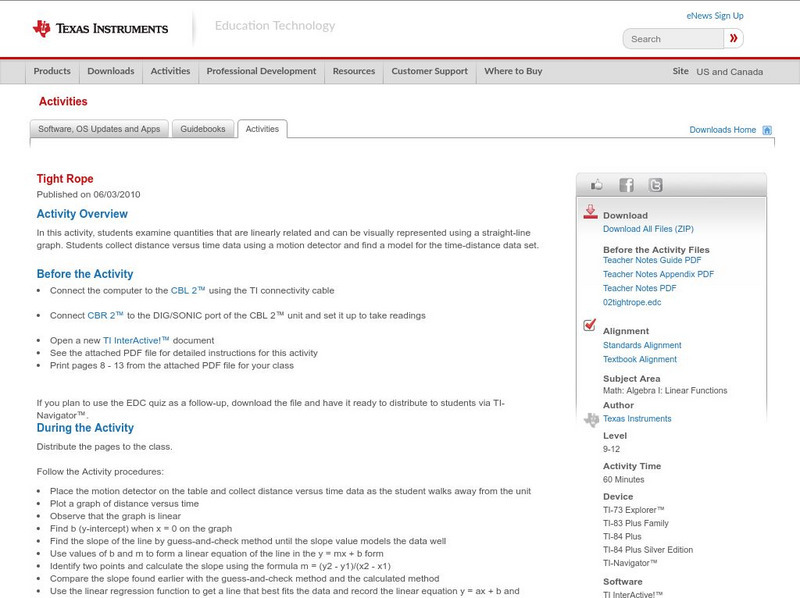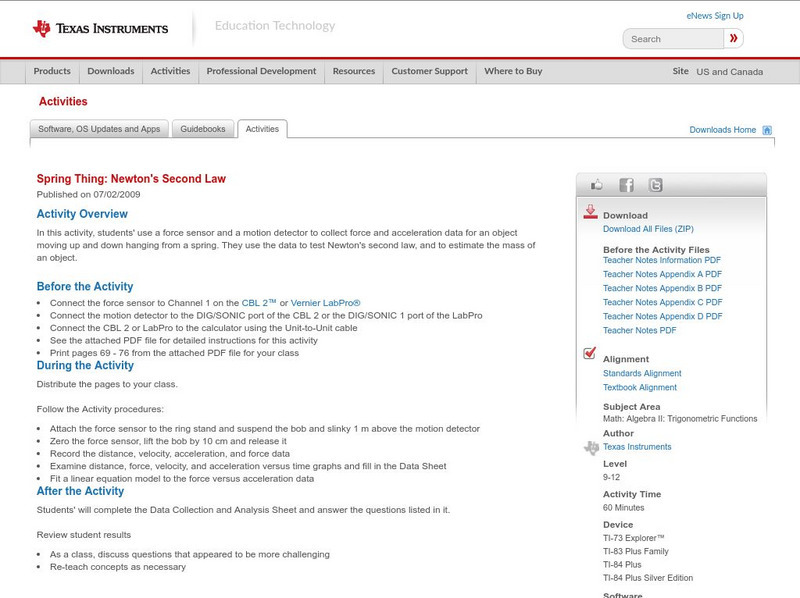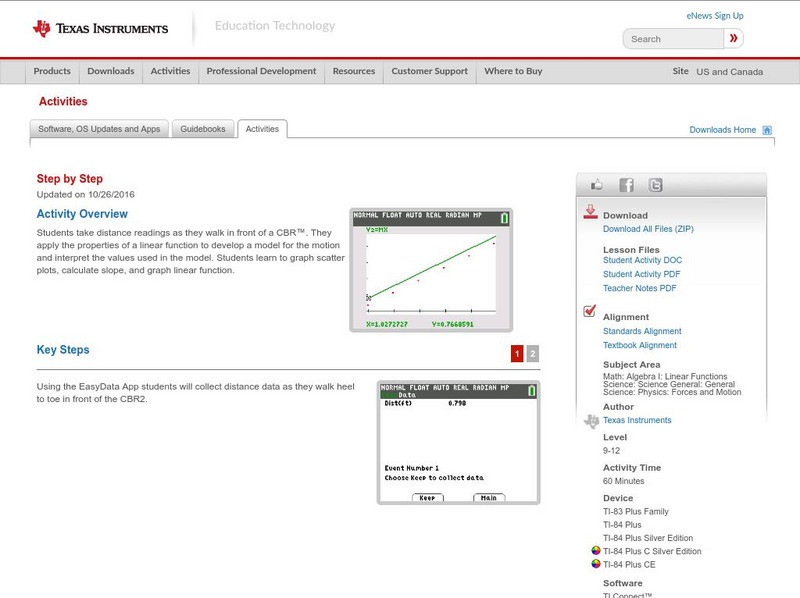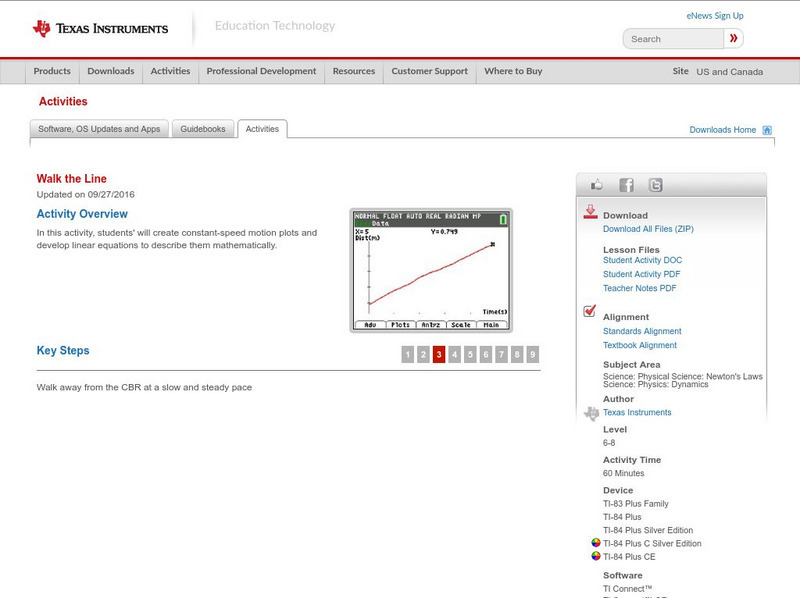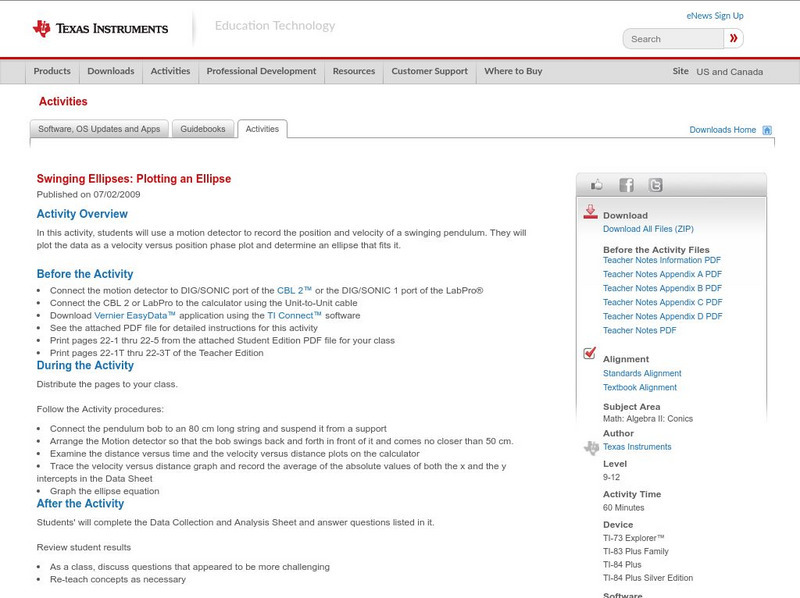Curated OER
Paper Suspension Bridges: You Want Me To Go Up There?
A few class periods will be required to complete this physics investigation with your high schoolers. There is an unavailable video written into the lesson plan, but there is plenty of material here to bridge the gap. Two terrific...
Curated OER
Water Pressure Blaster
Third graders complete an experiment to introduce them to the concept of water pressure. In this water pressure lesson plan, 3rd graders create pressure in a water bottle and observe the force of water that is created.
Curated OER
THE PHYSICS OF MOVING THINGS (AND NOT A MOMENTUM TOO SOON!)
Students list three examples of momentum found in their local environment; describe the importance of mass and velocity on momentum; and determine what is necessary to produce the greatest amount of momentum within a particular system.
Curated OER
From Bats to Babies: Ultrasound
High schoolers research and analyze sound waves and how an ultrasound works to image a baby in utero. They explore various websites, complete worksheets, and write a paragraph describing a demonstration they view in the classroom.
Curated OER
Automobile-Accident Reconstruction
Students investigate an accident and relate it to math. In this trigonometry lesson, students measure the accident scene, the friction produced, and the speed from the skid marks. They create a poster of their findings.
Curated OER
Collecting And Fitting Quadratic Data
Students investigate the concept of using quadratic data to plot coordinates on a plane. They also apply the quadratic formula for a variety of problems with the help of a graphing calculator to draw the parabola for given coordinates.
Curated OER
Introduction to Parametric Equations
Students write and solve parametric equations. In this algebra lesson plan, students find and eliminate parameter of equations. They graph parametric equations and analyze the graphs.
Curated OER
Quadratics: Polynomial Form
Students determine how changes in the coefficients in a quadratic function affect its graph. They determine how to use the equation to determine the intercepts of a quadratic function. Students identify the location of the intercepts...
Curated OER
Recognizing Patterns
Students explore the concept of patterns. In this patterns lesson, students use applets to manipulate tessellations. Students predict the next number in a sequence by recognizing patterns.
TeachEngineering
Teach Engineering: Matching the Motion
Students learn about slope, determining slope, distance vs. time graphs through a motion-filled activity. Working in teams with calculators and CBL motion detectors, students attempt to match the provided graphs and equations with the...
Texas Instruments
Texas Instruments: Applications
This activity includes scripts that enable students to understand all types of linear motion, such as vertical motion, horizontal motion, average velocity, and sliding ladder.
Texas Instruments
Texas Instruments: What Is Gravity? Activity Modeling Motion
This activity serves as a follow-up to Activity 4 in the Explorations book, Modeling Motion: High School Math Activities with the CBR by Linda Antinone, Sam Gough, and Jill Gough (Texas Instruments Incorporated, 1997).
Texas Instruments
Texas Instruments: Graphing Your Motion With Easy Data App and Cbr 2
Students can use a CBR 2 motion detector to measure distance and velocity. Students prepare graphs of motion and analyze them. They compare and match graphs of distance versus time and velocity versus time.
Texas Instruments
Texas Instruments: Step by Step Activity Data Collection & Analysis
In this activity, students create a situation that produces linear behavior by stepping heel to toe and taking distance readings as each step is taken. Students then apply the properties of a linear function to develop a model for motion.
Texas Instruments
Texas Instruments: The Linear Force Relation for a Rubber Band
In this activity, students' will use a force sensor and a motion detector to study the relationship between the force applied to a rubber band and the distance to which it stretches. They will then model force versus strech data with a...
Texas Instruments
Texas Instruments: Tic, Toc: Pendulum Motion
In this activity, students' will use a motion detector to plot the position versus time graph for a swinging pendulum. They will determine the period of the motion and model the position data using a cosine function.
Texas Instruments
Texas Instruments: Solving a System of Linear Equations
In this activity, students' will collect and analyze motion data in order to determine the solution to a linear system of equations. They graph two motions on a common axis and find their intersection.
Massachusetts Institute of Technology
Mit: Open Course Ware: Conservation of Linear Momentum and Collisions
Students explore conservation of linear momentum and collisions. Some topics examined in the activities are collisions, center of mass motion, variable mass, and momentum. The resource consists of video clips, lecture notes, practice...
Texas Instruments
Texas Instruments: Boats in Motion
In this lesson, students make observations about the motion of a boat going up and down the river. They will solve the system of equations algebraically and graphically.
Texas Instruments
Texas Instruments: Tight Rope
In this activity, students examine quantities that are linearly related and can be visually represented using a straight-line graph. Students collect distance versus time data using a motion detector and find a model for the...
Texas Instruments
Texas Instruments: Spring Thing: Newton's Second Law
In this activity, students' use a force sensor and a motion detector to collect force and acceleration data for an object moving up and down hanging from a spring. They use the data to test Newton's second law, and to estimate the mass...
Texas Instruments
Texas Instruments: Step by Step
In this activity, students take distance readings as they walk in front of a CBR. They apply the properties of a linear function to develop a model for the motion and interpret the values used in the model. Students learn to graph...
Texas Instruments
Texas Instruments: Walk the Line
In this activity, students will create constant-speed motion plots and develop linear equations to describe them mathematically.
Texas Instruments
Texas Instruments: Swinging Ellipses: Plotting an Ellipse
In this activity, Students can use a motion detector to record the position and velocity of a swinging pendulum. They will plot the data as a velocity versus position phase plot and determine an ellipse that fits it.


